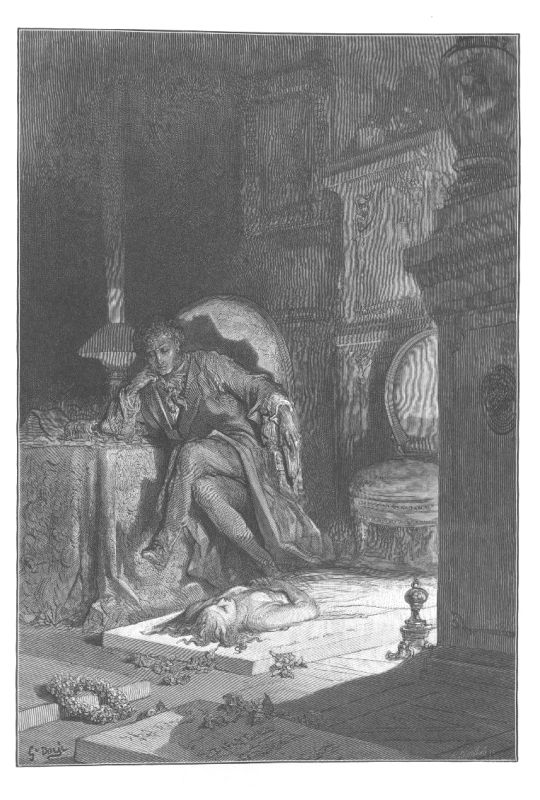O death, where is thy sting? O grave, where is thy victory? —1 Corinthians 15:55 King James
The chill of Autumn fills the air. The days grow shorter, the night lingers on. Draw close to the campfire as we share with you a true ghost story. Come closer. Closer! We’re now turning back the cold hands of time, slicing through the fog of the past, to delve into the tortured life of a great American author who was continually haunted by tragedy!

Edgar Allan Poe (January 19, 1809 – October 7, 1849) was a writer, editor, and literary critic, best known for such macabre tales as “The Fall of the House Usher” and “The Tell-Tale Heart,” as well as the classic poem “The Raven.” During his lifetime, Poe was lauded by critics and contemporary writers, including the author of The House of the Seven Gables, Nathaniel Hawthorne. Poe’s verse was hypnotic, and his prose vividly depicted the darker side of human nature. Today he’s regarded as the genius who: invented detective fiction; created the first recurring fictional sleuth (Sorry, Sherlock!); advanced the art of the short story; and made major contributions to the emerging genre we now call science fiction.
During his lifetime, Poe accomplished all this … and yet he was never able to support himself as a writer. In fact, debt and financial difficulty stalked him throughout his career. But his continual money problems were simply further evidence of a life plagued with adversity, scarred by tragedy.

Poe was born in Boston, the second child of two traveling actors. While Poe was still an infant, his father abandoned his family. A year later, when Poe was two, his mother died.
Poe was taken in by John and Frances Allan, a prosperous couple residing in Richmond, Virginia. The Allans never legally adopted the boy, but Poe’s new “father” did take frequent opportunities to berate the lad regarding expenses. When Poe entered the University of Virginia, John Allan refused to pay his tuition, and after a single semester Poe was forced to drop out for lack of money.
In 1827, in an attempt to raise the money for his tuition and further his education, Poe enlisted in the U.S. Army under an assumed name. Two years later his stepmother passed away, and afterwards, for a brief time, Poe and John Allan had an uneasy truce. Poe was able to enroll at West Point as an officer’s cadet. By then, however, Poe’s heart was in his writing, and within a few months he’d washed out from the prestigious military academy.
Poe’s initial verse and stories quickly sold to various newspapers and literary magazines. The writer thought he was on his way financially. So, in 1835, when Poe was 26, he married young Virginia Clemm. The two struggled together through twelve years of debt and, later, Virginia’s rapidly declining state of health.

Poe’s wife died of tuberculosis in 1847. Two years later, in Baltimore, and under mysterious circumstances, the still grieving writer followed his beloved to the grave. He was 40 years old.
Poe dealt with the specters of death, debt and despondency throughout his short career. But this haunted genius never allowed such things to kill his creativity. When their shadows fell across his life, he used them as inspiration and atmosphere, a backdrop for a body of work we’re still studying, still imitating two centuries later.
Got problems? Take them to the Lord. He’s got big shoulders and He can carry you through any adversity. Jesus said, “Here on earth you will have many trials and sorrows. But take heart, because I have overcome the world.” (John 16:33 NLT) Keep the faith and keep creating. God has won the victory through Christ Jesus. Nevermore need we suffer the bitterness of defeat. Nevermore!
“…Each person is destined to die once and after that comes judgement….” (Hebrews 9:27 NLT)
“But thank God! He gives us victory over sin and death through our Lord Jesus Christ.” (1 Corinthians 15:57 NLT)
